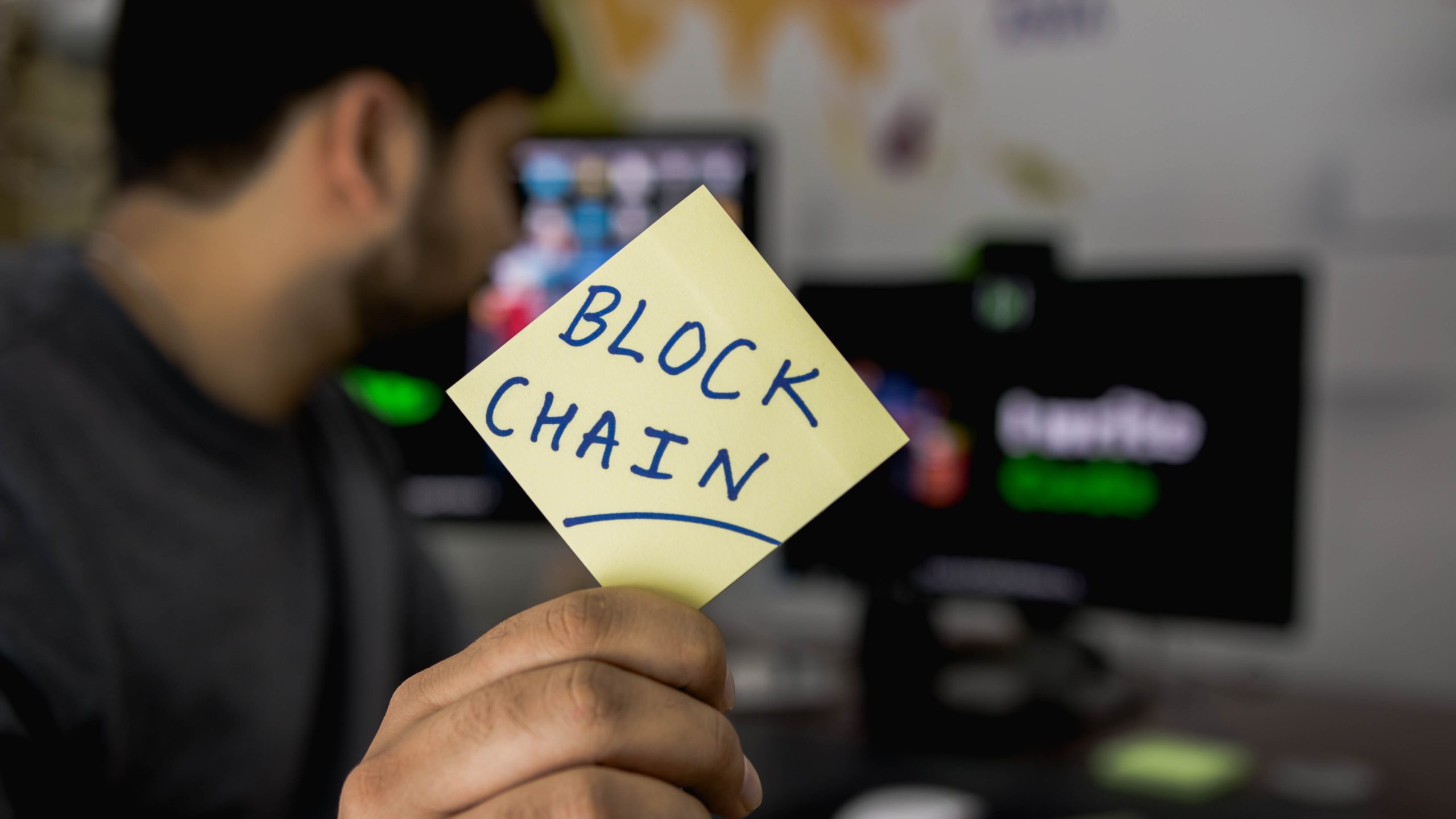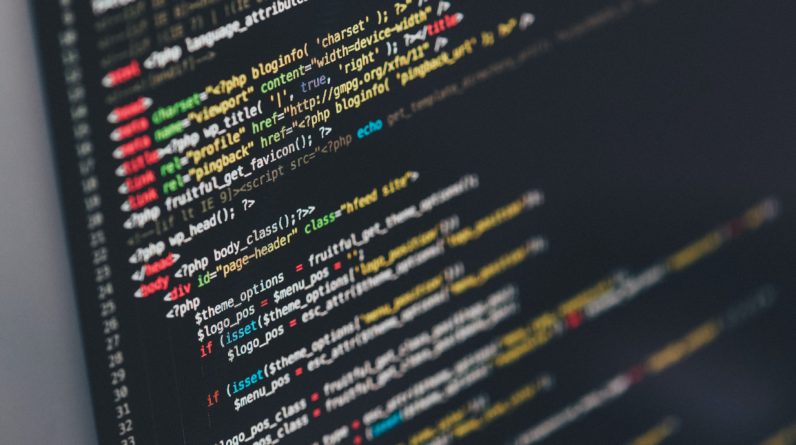
Blockchain Beyond Bitcoin: Emerging Uses In 2024
In the ever-evolving world of technology, blockchain has emerged as a groundbreaking innovation that goes beyond its initial association with Bitcoin. In this article, we will explore the emerging uses of blockchain in 2024. From revolutionizing supply chain management to transforming healthcare, blockchain technology is set to revolutionize various sectors, offering increased transparency, security, and efficiency. Get ready to discover the incredible advancements and potential that lie ahead as we dive into the world of blockchain beyond Bitcoin.

Digital Identity
Verification Processes
Blockchain technology has the potential to revolutionize digital identity verification processes. With traditional methods of identification being vulnerable to identity theft and fraud, blockchain offers a secure and transparent solution. Through the use of cryptographic algorithms, blockchain ensures that your digital identity is unique and cannot be tampered with. By providing a decentralized and immutable ledger, blockchain creates a system where your identity can be verified without the need for intermediaries. This eliminates the need to constantly share personal information and reduces the risk of identity theft.
Data Privacy and Security
In addition to enhancing verification processes, blockchain can also greatly contribute to data privacy and security. With the increasing amount of personal data being stored and shared online, the need for secure and trustworthy systems has never been greater. Blockchain technology offers a solution by providing a decentralized and encrypted network that ensures the privacy and integrity of your data. By distributing data across a network of computers, blockchain eliminates the risk of a single point of failure or hacking. This makes it virtually impossible for unauthorized individuals to access or manipulate your personal information.
Supply Chain Management
Enhanced Traceability
The use of blockchain in supply chain management can provide enhanced traceability for products. By recording every transaction and movement of goods on a blockchain, it becomes possible to track the origin and journey of a product from its source to the end consumer. This transparency ensures that products are sourced ethically and comply with regulations. In cases of product recalls or quality issues, blockchain allows for quick identification of affected products, minimizing the impact on consumers and facilitating efficient recalls.
Efficient Inventory Management
Blockchain can also streamline inventory management by providing real-time visibility into supply chain operations. By utilizing a shared ledger, all parties involved in the supply chain can have access to the same, up-to-date information. This eliminates the need for manual record-keeping and reduces the chances of errors or discrepancies. With accurate inventory data available at all times, businesses can optimize their supply chain processes, reduce costs, and improve customer satisfaction.
Authenticity Verification
Blockchain technology can help combat counterfeiting by providing a secure and immutable system for authenticity verification. With blockchain, unique identifiers can be assigned to products, making it easier to track and verify their authenticity throughout the supply chain. This is particularly important in industries such as luxury goods, pharmaceuticals, and high-value collectibles. By leveraging blockchain’s transparency and immutability, businesses and consumers can have confidence in the authenticity of the products they buy or sell.
Financial Services
Payments and Remittances
Blockchain technology has the potential to revolutionize the way payments and remittances are conducted. Traditional methods often involve multiple intermediaries, high fees, and lengthy processing times. With blockchain, payments can be conducted directly between parties without the need for intermediaries, resulting in faster and more cost-effective transactions. Additionally, blockchain’s transparency and immutability provide a secure and tamper-proof record of transactions, enhancing trust and reducing the risk of fraud.
Smart Contracts and Automated Transactions
Smart contracts, which are self-executing contracts with the terms of the agreement directly written into code, have the potential to automate financial transactions and reduce the need for intermediaries. Through blockchain technology, smart contracts can be securely stored and executed, ensuring that all parties involved in a transaction adhere to the agreed-upon terms. This not only improves efficiency but also reduces the risk of human error or manipulation. For example, in insurance claims processing, smart contracts can automatically trigger payments based on predefined criteria, eliminating the need for manual verification and reducing processing times.
Healthcare
Secure Medical Records
The implementation of blockchain in healthcare can greatly enhance the security and accessibility of medical records. With traditional methods of record-keeping, medical data is often scattered across different healthcare providers, making it difficult to access and share information when needed. Through blockchain, medical records can be securely stored and encrypted, allowing patients to have full control over their data. By giving patients the ability to grant access to specific healthcare providers or researchers, blockchain ensures the privacy and security of sensitive medical information.
Drug Traceability
Blockchain can also play a crucial role in ensuring the authenticity and traceability of drugs in the pharmaceutical industry. Counterfeit drugs pose a significant risk to public health, and blockchain technology can help combat this issue. By recording every transaction and movement of drugs on a blockchain, it becomes possible to track the entire supply chain, from the manufacturer to the end consumer. This transparency ensures that drugs are sourced from legitimate suppliers and that they have not been tampered with during their journey.
Clinical Trials and Research
Blockchain technology can facilitate the sharing and collaboration of medical research data, leading to advancements in clinical trials and research. Through blockchain, researchers can securely and anonymously share their data, ensuring that intellectual property rights are protected. This can lead to more efficient and reliable clinical trials as researchers can access a wider range of data for analysis. Additionally, blockchain’s transparency can help verify the validity of research findings, enhancing the credibility and trustworthiness of medical research.

Voting Systems
Transparent and Verifiable Elections
Blockchain can address some of the challenges associated with traditional voting systems, such as voter fraud and lack of transparency. By recording votes on a blockchain, it becomes nearly impossible to alter or manipulate the results. Additionally, blockchain’s transparency ensures that anyone can audit the voting process and verify the accuracy of the results. This can help increase trust in the electoral system, enhance the legitimacy of elections, and promote democratic participation.
Increased Civic Participation
Blockchain can also encourage increased civic participation by providing accessible and secure platforms for voting. With traditional voting methods, certain populations, such as overseas voters or individuals with disabilities, face barriers to participation. Blockchain-powered voting systems can overcome these barriers by allowing individuals to cast their votes securely and conveniently from anywhere in the world. This can lead to increased voter turnout and a more inclusive democratic process.
Education
Credential Verification
Blockchain technology can enhance the verification of academic credentials, such as degrees and certifications. Currently, the process of verifying academic credentials can be time-consuming and prone to fraud. By recording academic achievements on a blockchain, credentials can be securely stored and verified in real-time. This simplifies the verification process for employers, educational institutions, and other stakeholders, reducing the risk of credential fraud.
Secure Storage of Academic Records
In addition to verification, blockchain can provide secure storage for academic records. With the increasing digitization of educational records, the need for a secure and standardized system for record-keeping has become crucial. Blockchain offers a decentralized and tamper-proof solution for storing academic records, ensuring their availability and integrity for future reference. This can streamline processes such as admissions, student transfers, and recruitment, making it easier for individuals to access and share their educational achievements.
Real Estate
Secure and Transparent Property Transactions
Blockchain technology has the potential to revolutionize the way real estate transactions are conducted. Traditional methods often involve numerous intermediaries, complex paperwork, and high costs. With blockchain, property transactions can be securely recorded and verified, eliminating the need for intermediaries and reducing the risk of fraud. This transparency and security can increase trust among buyers and sellers, streamline the transaction process, and lower costs.
Efficient Property Transactions
Blockchain can also improve the efficiency of property transactions by automating tasks and enabling real-time data sharing. By utilizing smart contracts, which automatically execute predefined actions based on predefined conditions, certain aspects of property transactions, such as title transfers and payments, can be streamlined. This reduces the potential for errors and delays, making property transactions faster and more efficient.
Energy Management
Decentralized Energy Grids
Blockchain technology can contribute to the development of decentralized energy grids. With traditional centralized energy systems, power generation, distribution, and consumption are controlled by a single entity. This can result in inefficiencies and limited consumer choice. Through blockchain, energy production and consumption can be decentralized, allowing for peer-to-peer energy trading and more efficient energy management. This empowers individuals and communities to take control of their energy usage, encourages renewable energy adoption, and fosters a more sustainable energy future.
Peer-to-Peer Energy Trading
Blockchain can enable peer-to-peer energy trading, allowing individuals to buy and sell excess energy directly to others within a decentralized network. This eliminates the need for intermediaries and enables consumers to monetize their excess energy, fostering a more efficient use of renewable energy resources. By leveraging blockchain’s transparency and immutability, peer-to-peer energy trading can ensure fair and secure transactions, benefiting both producers and consumers.

Legal Contracts
Immutable Contracts
Blockchain technology can ensure the immutability and integrity of legal contracts. With traditional paper-based contracts, there is always a risk of tampering or disputes over the terms and conditions. Through blockchain, contracts can be securely stored and executed, ensuring that the agreed-upon terms cannot be altered without the consent of all parties involved. This reduces the risk of contract disputes and provides a transparent and tamper-proof record of agreements.
Automated Execution and Verification
Blockchain can also automate the execution and verification of legal contracts, reducing the need for intermediaries and streamlining the legal process. Smart contracts, which are self-executing contracts with the terms directly written into code, can automatically enforce the agreed-upon conditions and trigger actions based on predefined criteria. This eliminates the need for manual verification and reduces the potential for human error or manipulation. By leveraging blockchain’s transparency and automation capabilities, legal contracts can be executed and verified more efficiently and securely.
Art and Intellectual Property Rights
Provenance Tracking
Blockchain technology can revolutionize the provenance tracking of art and intellectual property rights. With traditional methods, verifying the authenticity and ownership of art or intellectual property can be challenging and subjective. Through the use of blockchain, every transaction and movement of an artwork or intellectual property can be recorded, creating a transparent and tamper-proof chain of custody. This provides a secure and verifiable record of ownership and provenance, eliminating the risk of fraud and ensuring the integrity of the art market and intellectual property rights.
Royalty Distribution
Blockchain can also improve the transparency and efficiency of royalty distribution in the art and intellectual property industry. With traditional methods, collecting and distributing royalties can be a complex and opaque process. By utilizing blockchain, royalties can be automatically tracked and distributed to the rightful owners based on predefined rules and conditions. This eliminates the need for intermediaries and ensures a fair and transparent royalty distribution system. Artists and creators can have confidence that they are being properly compensated for their work, while licensees can have greater transparency into the royalties they owe.
In conclusion, blockchain technology has the potential to revolutionize various industries beyond Bitcoin. From enhancing digital identity verification to improving supply chain management and financial services, the benefits of blockchain are vast. Healthcare, voting systems, education, real estate, energy management, legal contracts, and art and intellectual property rights can all benefit from the transparency, security, efficiency, and trustworthiness that blockchain brings. As this innovative technology continues to develop, we can expect to see even more emerging uses and advancements.







